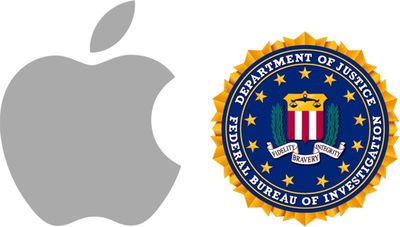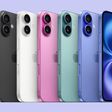Apple's head lawyer Bruce Sewell and FBI Director James Comey today testified at a U.S. congressional hearing on encryption issues, where both sides reiterated many of the same arguments that have been circulating since Apple was ordered to help the FBI unlock the iPhone used by San Bernardino shooter Syed Farook.

Several interesting tidbits came up throughout the testimony, which lasted for most of the day. One of the most concerning points raised at the hearing (via The Verge) covered the precedent that would be set for other countries around the world should Apple be forced to break into an iPhone in the United States.
I think the world is watching what happens in our government right now and what happens right now with this particular debate. Our ability to maintain a consistent position around the world, our ability to say we will not compromise the safety and security of any of our users around the world, is substantially weakened if we are forced to make that compromise here in our own country."
Sewell went on to say that Apple has not received similar demands for data from "any other country," but that if the company is ordered to comply, "it will be a hot minute before we get those requests from other places."
Sewell also shared an interesting tidbit on the disappearance of Malaysia Flight 370 when asked how quickly Apple is able to respond to government requests for assistance. When the flight went missing, Apple started working with officials "within one hour" to attempt to locate the plane. "We had Apple operators working with telephone providers all over the world, with the airlines, and with the FBI to find a ping," he said.
At the hearing, FBI Director James Comey testified during the first panel, while Sewell testified during the second, accompanied by Worcester Polytechnic Institute professor Susan Landau, who sided with Apple, and New York District Attorney Cyrus Vance, who sided with the FBI.
Comey asked the committee to consider the implications of places law enforcement can't reach. "If there are warrant-proof spaces in American life, what does that mean? What are the costs?" Comey also reiterated the FBI's position that no other agency, such as the National Security Agency, could or would provide the FBI with a tool able to break an iPhone 5c running iOS 9.
Susan Landau raised some salient questions about the FBI's available technology, suggesting the government agency needs to focus on innovating and recruiting talent to build better tools rather than asking Apple to build the software. "Instead of laws and regulations that weaken our protections, we should enable law enforcement to develop twenty-first century capabilities for conducting investigations," she said.
New York District Attorney Cyrus Vance said New York now has more than a hundred devices it would like to see unlocked, further confirming Apple's point that the argument isn't about just one iPhone. "No device or company, no matter how popular, should be able to exempt itself from court obligations unilaterally," he told the committee.
Statements from Comey, Sewell, Landau, and Vance outlining their positions are available from the Judiciary Committee website, as is a video that includes some of the testimony from the hearing. Apple and the FBI will face off at a court hearing over the iPhone issue on March 22.
Note: Due to the political nature of the discussion regarding this topic, the discussion thread is located in our Politics, Religion, Social Issues forum. All forum members and site visitors are welcome to read and follow the thread, but posting is limited to forum members with at least 100 posts.





















